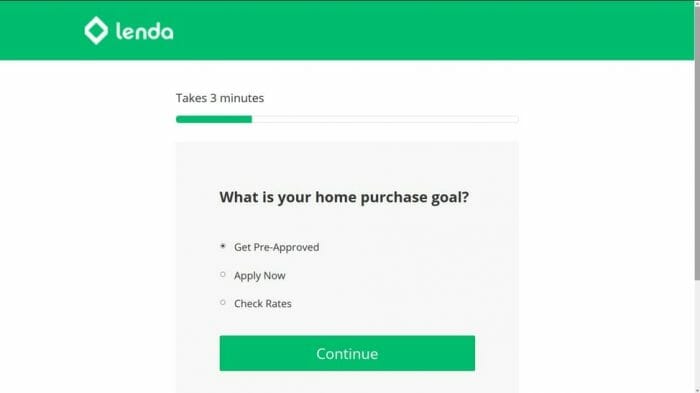There are many ways to access your home’s equity, with a home equity loan and home equity line of credit among the most popular.
But there’s another option.
With Hometap, you can tap into your home’s equity without taking out a loan and taking on monthly payments.
In This Article:
- Our Verdict
- Full Hometap Review
- How Hometap Works
- Application Process
- Investment Estimate
- Third-Party Appraisal
- Signing Closing Documents
- Key Benefits of Hometap
- Downsides of Using Hometap
- Hometap Costs and Fees
- Eligibility
- Security and Privacy
- Property Renovations
- Customer Support
- Hometap Frequently Asked Questions (FAQs)
- Hometap Review: Final Verdict
Our Verdict
Hometap provides a simple, straightforward, and transparent process for borrowing against your home’s equity.
The process begins by completing a basic eligibility application. From there, if you’re eligible, Hometap makes you an offer.
You can then use the funds however you best see fit, without any loan payment bogging down your budget.
The final step is paying back the money, which is done in one of three ways:
- Sell your house during the effective period
- Buy out your investment with cash
- Take out a traditional home equity loan (or personal loan)
Think about it this way. Hometap is an investor, as opposed to a lender. In our opinion, this arrangement makes for a mutually beneficial arrangement.
Pros
- No monthly payment
- Fast and easy application process
- No impact on your credit for an estimate
Cons
- 10-year term limit
- Forced sale risk
- Not available in all states
Full Hometap Review
Hometap considers itself to be “The smart way to tap into your home’s equity.”
Unlike a traditional home equity loan or line of credit, Hometap takes on the role of an investor. Although this makes it more difficult to qualify, it’s a good alternative for those who don’t want to take on a monthly loan payment (with interest).
How Hometap Works
Applying for an equity investment from Hometap is different from a traditional home equity product.
There’s a three-step process for getting started:
- Complete the “get an estimate” form on the Hometap website
- Receive your funds upfront
- Repay the money when you sell your home, via savings, or by taking out a traditional bank loan
Application Process
As noted above, completing the “get an estimate” form is the first step in the process. It only takes two minutes to see if you’re pre-qualified for a Hometap investment.
If your property is eligible, you can then proceed with a more formal application.
Investment Estimate
In addition to receiving an investment estimate, Hometap will also connect you with an investment manager. This person can answer your questions, provide guidance, and walk you through the rest of the process.
Third-Party Appraisal
Using a third-party appraiser, Hometap will schedule an appraisal of your home. Once the appraisal is complete, the investment details can be finalized for closing.
Signing Closing Documents
This is the last step in the process. You don’t have to meet with anyone in person. Everything can be done electronically, and once the documents are signed, it won’t be long before you have your funds.
Key Benefits of Hometap
There are many benefits of a Hometap equity sharing agreement, especially when compared to a more traditional loan product. Here are just a few of the benefits:
- No monthly payment: With an equity investment, you don’t have a monthly payment. This means there’s no impact on your monthly budget.
- No loan interest: With a loan, you pay interest every month. But with an equity sharing agreement, this doesn’t come into play.
- No home inspections: There’s nothing worse than a home inspection that stops you from obtaining funds. You don’t have to worry about that with Hometap.
- No impact on your credit for an estimate: The pre-approval process will not affect your credit score in any way.
Downsides of Using Hometap
Even though the benefits of using Hometap far outweigh any potential downsides, it’s still important to make note of the following:
- No immediate funds for emergencies: It takes some time to finalize a shared equity agreement. So, if you need funds within a couple of days for an emergency, this isn’t the product for you.
- 10-year limit: There is a 10-year term for settling your Hometap investment.
- Forced sale risk: After 10 years, you may be forced to sell your home if you don’t have the funds to repay Hometap.
- Your home could go up in value: The more your home is worth, the more money Hometap makes. Renovation appreciation is a good thing for a short or long-term homeowner, but it also works in favor of Hometap as an equity investor.
- Not available in all states: Hometap is currently available in 14 states including Arizona, California, Florida, Maryland, Massachusetts, Michigan, Minnesota, New Jersey, New York, North Carolina, Oregon, Pennsylvania, Virginia, and Washington.
- Less cash than a home equity loan: With a shared equity agreement, you’re not likely to receive as much cash as you would with a home equity loan.
Hometap Costs and Fees
While there are costs and fees associated with using Hometap, it’s good to know that you don’t owe anything out of pocket. Instead, all costs are deducted from the total investment.
Hometap charges a closing fee equal to three percent of the investment amount. So, if you receive an investment of $30,000, you’ll owe $900.
There are also third party costs including:
- Full appraisal: $599 ($800 in Oregon)
- Title charges: $700-$800
- Government recording and transfer charges: $370-$1,000
The biggest way Hometap makes money is by taking a “Hometap Share” fee when you sell your home or buy out the investment. This is based on a predetermined percentage of the home’s value.
Eligibility
Determine your eligibility by completing the “get an estimate” form. It only takes two minutes to do so.
Note: if you don’t live in one of the 14 states listed above, you’ll receive an immediate rejection.
Also, as an equity investor, Hometap typically looks for a loan to value (LTV) ratio of no higher than 75 percent. So, if you have less than 25 percent equity, you’re not likely to qualify.
You must also have a credit score above 600 and be seeking an investment amount of 30 percent or less of your home’s appraised value.
Security and Privacy
Hometap’s privacy policy outlines its approach to keeping your information both confidential and secure.
There’s also a “Sharing of Information Disclosure” that describes how your information is collected and used.
Property Renovations
Using Hometap to access the equity in your home doesn’t mean that you have to clear all renovations through the company. Here’s language directly from its website:
“No, we’re not involved in any renovation decisions and we don’t share in any of the home value attributable to renovations, as determined by an appraiser.”
Just remember this: renovation appreciation works in favor of both you and Hometap.
Customer Support
In addition to an investment manager who can walk you through the process, you can connect with the Hometap customer support team via email or phone.
Hometap customer support agents are available via phone Monday to Thursday 8 am – 8 pm EST and Friday 8 am – 5 pm EST.
Hometap Frequently Asked Questions (FAQs)
Here are some of the most common questions associated with Hometap and equity in exchange agreements in general:
How much can you borrow with Hometap?
Hometap makes investments up to 30% of your total home value at a maximum of $400,000. You’re not required to take the full investment you’re offered.
How much does Hometap charge?
Your closing documents will clearly outline Hometap’s investment share. This varies from property to property based on factors such as the appraised value and location.
Is there a minimum credit score for Hometap?
Yes, Hometap requires a minimum credit score of 600.
Where is Hometap licensed?
Hometap is currently licensed to make investments in these 14 states: Arizona, California, Florida, Maryland, Massachusetts, Michigan, Minnesota, New Jersey, New York, North Carolina, Oregon, Pennsylvania, Virginia, and Washington.
What happens if your home declines in value?
This is a risk that Hometap takes. You’re not responsible if your home declines in value.
Does the sale of equity in your home trigger capital gains tax?
It’s best to consult with a tax advisor to learn more about the impact of an equity in exchange agreement on your taxes.
As a tax-deferred investment you’re not likely to owe capital gains tax but check on this before you accept funds.
What happens if you die?
If you’re the only owner, the obligation to settle your Hometap investment moves to the estate.
If you’re a co-owner, such as with a spouse, the agreement does not change if one of you passes on.
What happens if you get a divorce from a co-owner?
This depends on the details of your divorce agreement. For example, if you plan on selling your home, you’ll do so just as if you were married and Hometap will take its fee at that time.
Are there any closing fees?
Yes, there is a closing fee equal to three percent of the investment amount. Also, expect to pay for an appraisal, title charges, and government recording and transfer charges.
Hometap Review: Final Verdict
With this Hometap review, we hope that you better understand how the service differs from a traditional home equity loan or line of credit.
If you’re looking to access your home’s equity without securing a loan, Hometap is one of the best ways to do so.
,





